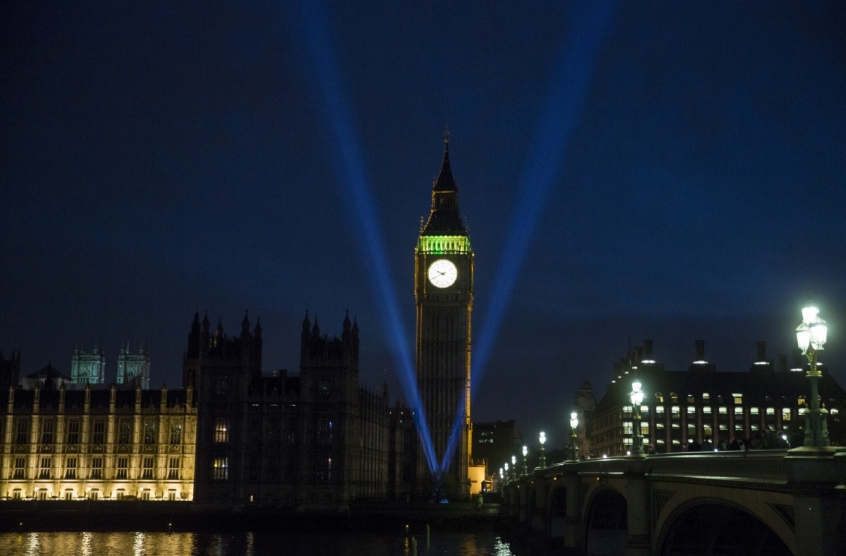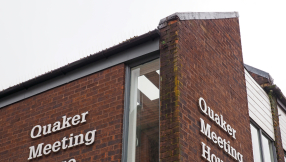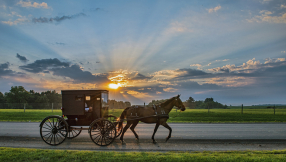
Theresa May is increasingly vocal over her own Christian faith and defending what she describes as British Christian values.
But in the wake of her calling a snap general election for June 8, it is worth examining the most recent detailed polling data on political views and priorities among voters who are practising Christians.
The Christian charity Tearfund commissioned the polling company Comres to research into Christian political positions immediately after the last general election in June 2015.
May, the Conservative leader, might do well to examine the findings before drawing up her party's official manifesto. For although practising Christians apparently voted broadly in line with the public by party (except for a notably higher proportion of Christians voting Liberal Democrat: 15 per cent compared to the public's 7.9 per cent), when it comes to the major issues, they appear to take a distinctly leftist and 'liberal' approach.
A 'headline' fact that stands out is that despite immigration being obsessively debated – through a perennially right-wing prism of cuts – at Westminster, the issue features considerably low down the list of priorities for practising Christians.
Instead, 'social justice', inequality and the gap between the rich and the poor are top of the list of current issues concerning these Christians.
Social justice, which is traditionally the cause and mantra of the Labour party, came top at 27 per cent, followed by concern about religious decline and secularism (18 per cent), migration (14 per cent) and poverty (12 per cent).
Europe, albeit before the Brexit referendum of last June, was interestingly low in June 2015, at five per cent.
Unsurprisingly, evangelicals are slightly more conservative (and Tory) than the wider Christian field, though intriguingly more evangelicals voted Lib Dem than Labour, by 17 per cent to 16 per cent respectively, against the national trend. (This spike might well hold or even increase in June thanks to the Lib Dems being led by an evangelical Christian, Tim Farron, as opposed to his atheist predecessor Nick Clegg.)
Meanwhile Catholics, many of whom are migrants themselves, are slightly more leftist on the issues, especially immigration, and were more inclined to vote Labour under Ed Miliband (26 per cent) than wider Christians (24 per cent).
When asked what is the most important issue reply was for the next 10 years, the environment or climate change came top, at 28 per cent.
When asked which issues were most important in helping them decide who to vote for in the general election specifically, practising Christians were once again in line with the wider electorate, self-identifying the economy (18 per cent) as most important, followed by 'shared values' (13 per cent), social justice (11 per cent) and the qualities of the candidate (12 per cent).
In other words, the Church of England can hardly any longer be described as 'The Tory party at prayer', with Anglicans voting Conservative over Labour only by a margin of three per cent at the last general election: 29 per cent to 26 per cent.
Indeed, the Lib Dems are doing surprisingly well among Britain's practising Christians, perhaps, in part, because of their emphasis on the environment, the issue about which Christians are most concerned over the next 10 years. They may yet do even better.
The wild card in party political terms is how Labour will fare among Christians under Jeremy Corbyn, who is widely thought to be an atheist unlike May and Farron, though he has sometimes denied this. More importantly, on the issues his party may be more in tune with Christian voters, though whether Christians – who primarily vote on the economy at election time – will see Corbyn's Labour as credible, remains to be seen.
These data show that Christians, like the wider British electorate, are very far from apathetic. But they have every reason to feel alienated. The distinction is important. Because what is clear is that there is a major disconnect between the Westminster village and the right-wing-dominated media – obsessed by immigration and Europe – on the one hand, and Christian voters, who are far more concerned about poverty, justice and the future of the planet, on the other.
ComRes interviewed 1,507 practising Christians in the UK online between the 14th and 17th May 2015. Data were weighted to be representative of all UK practising Christians aged 16+ as per the Church Census 2005.
The full data can be found on the ComRes website.









